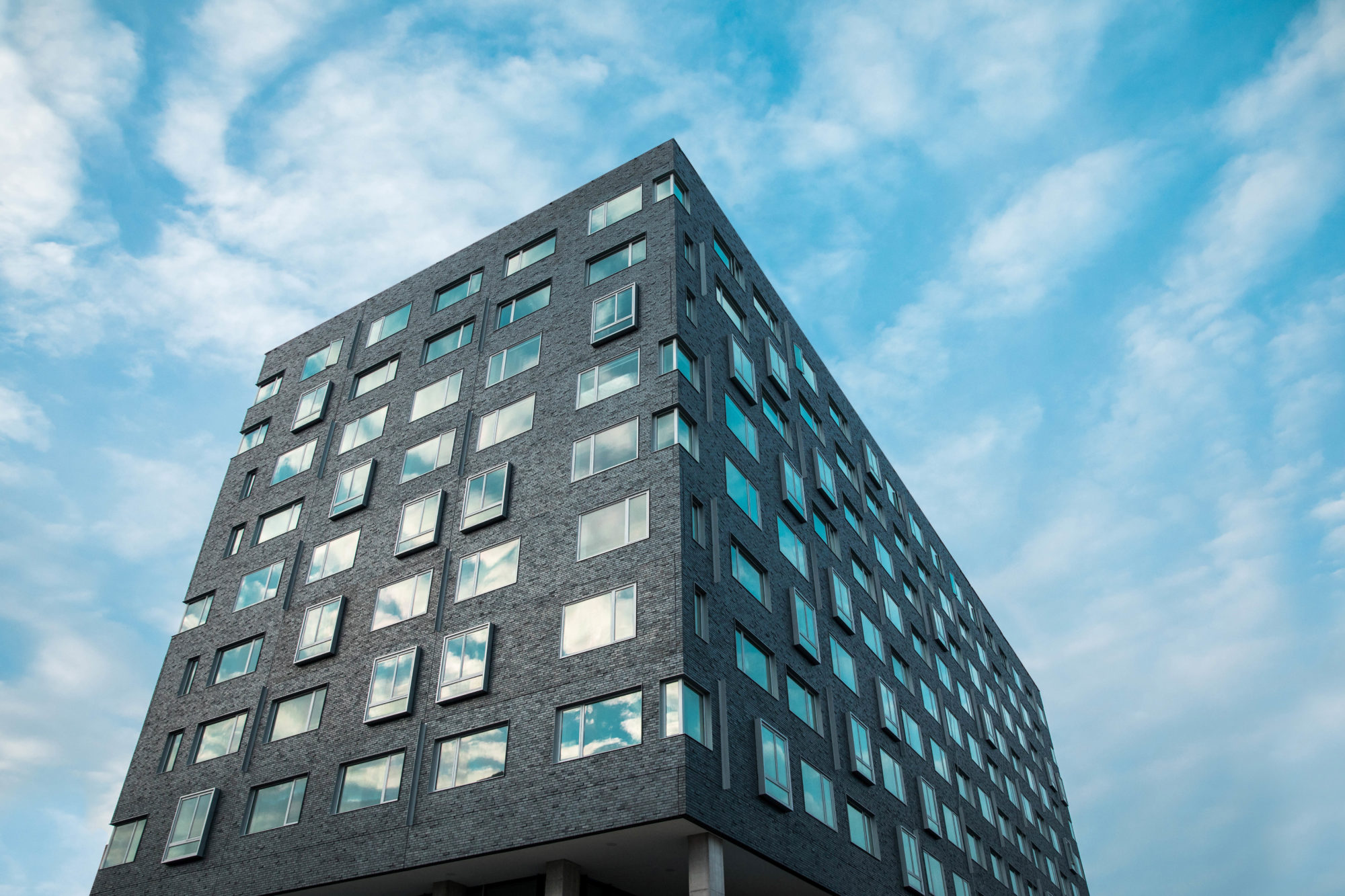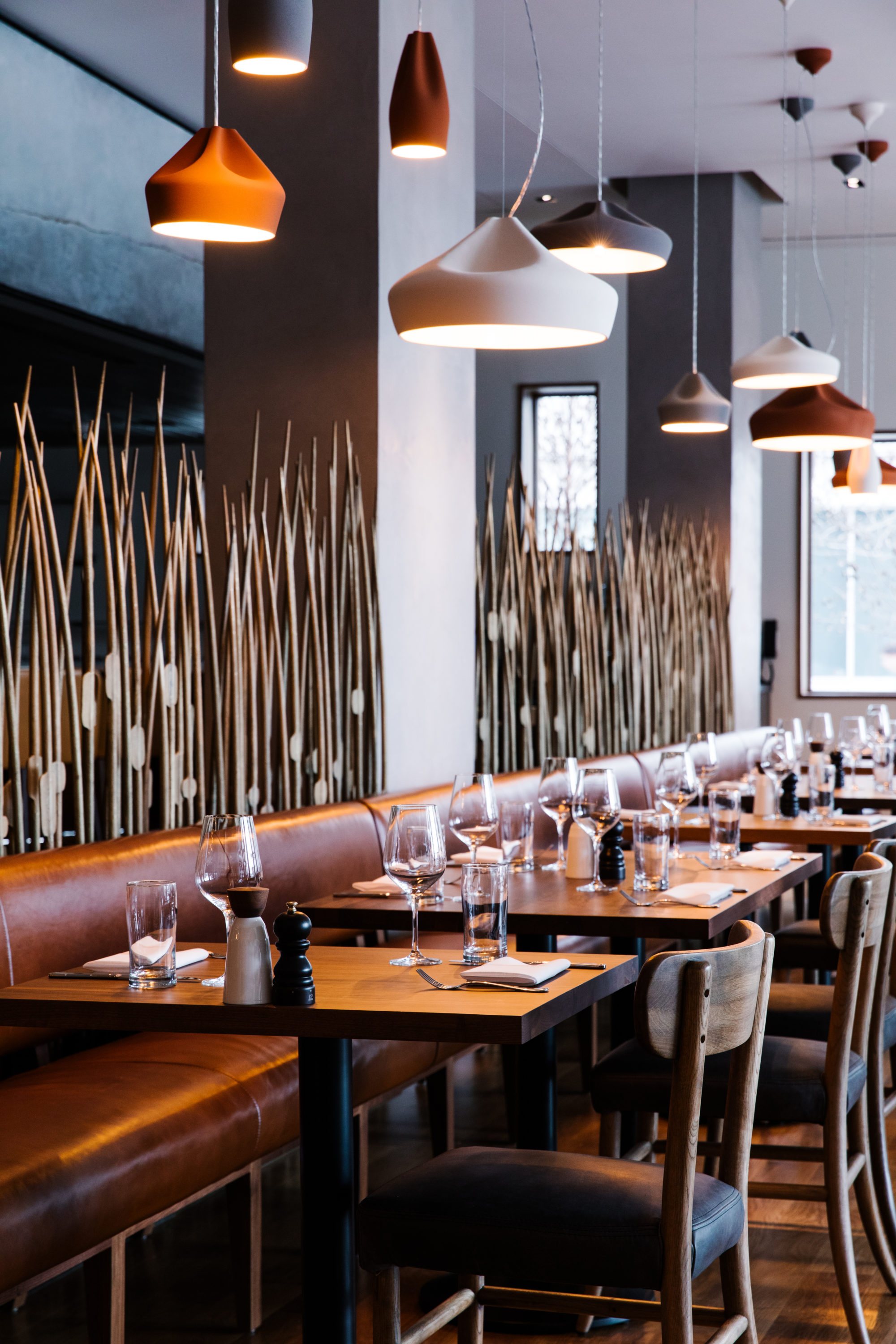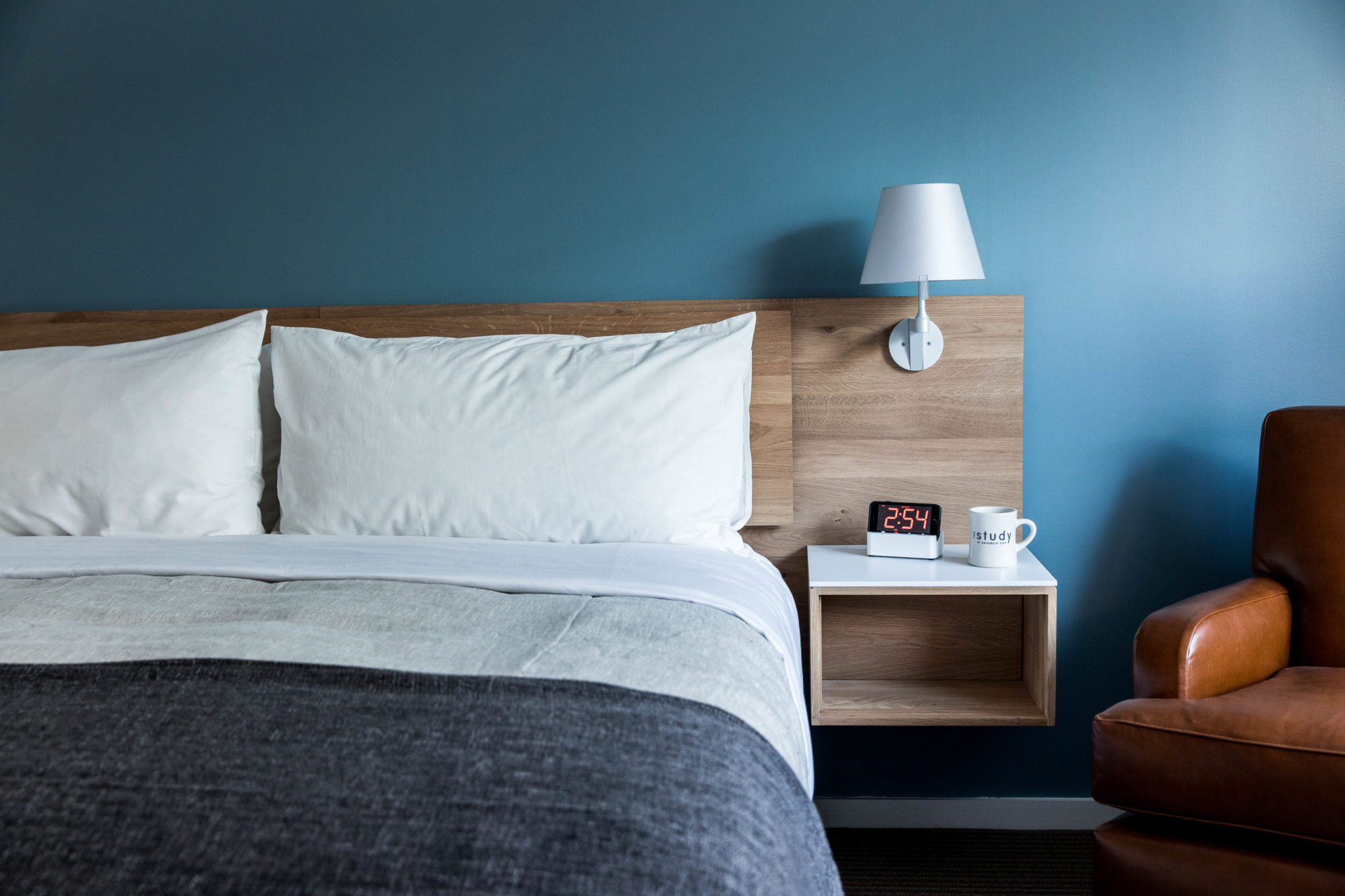If necessity is the mother of invention, then Study Hotels has been a long time coming.
When conceptualizing a blueprint for bringing upmarket properties to college towns, founder Paul McGowan thought a lot about the magic of campus. “It’s a place of positive energy and we wanted to create an environment that reflects that,” says the former Starwood executive, who came up with the idea while touring schools with his daughter in 2003. At the Yale University flagship, a library stocked with books authored by Yale grads, complimentary tickets to sporting events, and an onsite gallery showcasing the works of Yale Schools of Art and Architecture students are just a few of the ways the hotel assimilates with college culture. Throw in a farm-to-table restaurant that sources ingredients from New England purveyors and New Haven has finally gained a worthy hub to host its esteemed alma mater and visiting dignitaries. (New York Times columnist David Brooks is a frequent guest.)
Now, after the runaway success of the original, comes the 212-room Study at University City. While Philadelphia is no stranger to high-service hotels, there’s nothing like the new outpost in the western part of town, where UPenn and Drexel intersect on Chestnut and 33rd Streets. Like its Connecticut counterpart, Study at University City hews to the schools it serves. Local architecture firm Digsau fashioned moments of discovery throughout the communal areas of the former admin building. Massive floor-to-ceiling windows in the lobby allow the morning light to pour in as guests read newspapers in wingback leather chairs. A sleek cutout space in the corner replicates a Scandi-style café with a single wooden bench next to the coffee station. A series of museum-quality cases display samplings of the collections on loan from the University of Pennsylvania Museum of Archaeology and Anthropology, Drexel’s Academy of Natural Sciences, and National Museum of American Jewish History downtown. “There’s a really strong connection to Philadelphia and both universities,” McGowan says. “People can be sitting in the lobby having a glass of wine and look at something interesting, maybe even following that further and visiting the museums on their own.”
The rooms exhibit a clean-lined practicality, with surrealist oil paintings from local gallery Carré d’Artistes and writing desks that look out at Drexel’s student apartments, designed by architect Robert A. M. Stern, and UPenn’s football stadium down the road.
On a recent night at the restaurant Co-Op, helmed by former Will BYOB chef Craig Russell, McGowan’s vision seemed to be taking form. Under irregularly-shaped Marset lighting fixtures, families ordered from the seasonal menu of grass-fed burgers, hen stew, and rotisserie-cooked chicken and vegetables. (Drexel was the first co-op university, a method that combines job-related training with traditional classroom credits.) From its inception, McGowan wanted the Study brand, which has its sights set on the University of Chicago and Ann Arbor’s University of Michigan next, to fit into the collegial environment and tap into the nostalgia of higher education. “It seemed natural to have a social platform for people to celebrate the whole college experience. The direct connection and embrace that occurs between universities and students leaves a tremendous opportunity for us. If we can create that place where parents come and have dinner with their children, building memories over four years that have a lasting impression,” he says. “Then it becomes a part of the culture and personality of the school.” Starting rate from $189; thestudyatuniversitycity.com.



